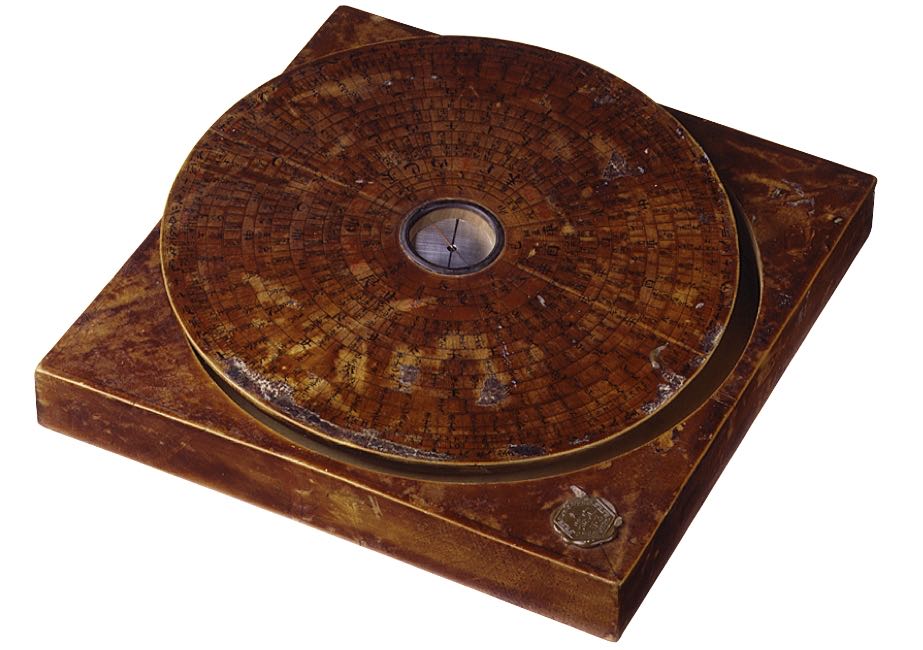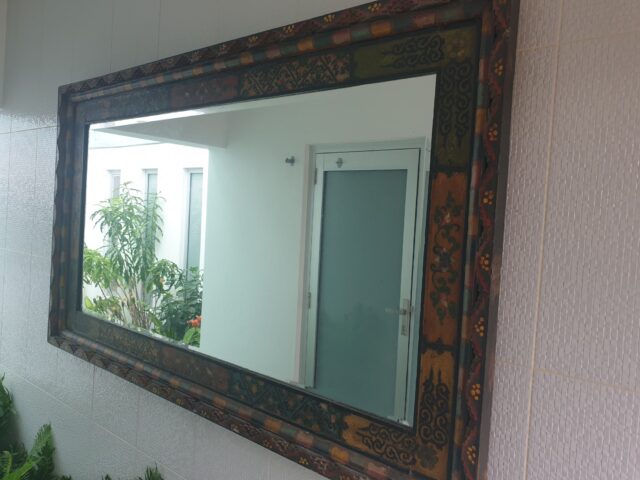The purpose of this magazine is to open up to a much wider audience the mysteries of feng shui. These once secret Chinese practices have proven to be as practical and useful as acupuncture or the Chinese martial arts, whose effectiveness are undoubted by most westerners
 The thing that distinguish all these Chinese arts from Western equivalents is that their theoretical basis derives from a totally different view of the universe. Western ‘science’ does not find it easy to accept something like feng shui even when it works time and time again, when its theoretical roots do not fit in with the limited Western view of the universe.
The thing that distinguish all these Chinese arts from Western equivalents is that their theoretical basis derives from a totally different view of the universe. Western ‘science’ does not find it easy to accept something like feng shui even when it works time and time again, when its theoretical roots do not fit in with the limited Western view of the universe.
The solution is to stand back, and see what feng shui can do for you. Then when you see the results, you can decide if you want to follow through and get involved in the theory so that you can appreciate how it works, and use it to improve the quality of your life.
The geography of feng shui
SPONSORED
Feng shui (pronounced ‘foong-schway’) means wind and water. Basically all life on this planet from the rocks in the mountains underfoot to the weather and moods of the heavens is effected by wind and water, and is animated by a life force called ch’i (pronounced chee). Ch’i flows through everything: where it is concentrated plants flourish, animals flourish and man flourishes and multiplies. Ch’i is most often found concentrated where water flows slowly and sinuously. Why, for example, are most of the great cities of the world found on sheltered harbours or slow-flowing rivers? These sites accumulate ch’i which in turn encourages life and stimulates trade.
Where ch’i stagnates and forms backwaters, life eventually looses its resilience, decays and dies. Where ch’i rushes past, like at river rapids, no beneficial accumulation of this life force can develop, and few settle. Ch’i works at many different levels.
Psychology
A beneficial concentration of ch’i does not just favour plants and animals, it also benefits our positive attitude to life, our hopes and dreams, and the energy that we have to make them come real.
Ch’i concentrations affect our emotions and attitude. We all know how depression (associated with stagnant ch’i ) robs us of the power to plan ahead, to move forward, to grow, with the result
 | feng | (foong) | wind |
| shui | (schway) | water |

that one set back follows close on the heals of another, as if life was conspiring against us. But when we are feeling strong, when ch’i is present in abundance, no challenge is too great for us. If we fail we just pick ourselves up and try again.
Positive attitude by itself is sometimes hard to maintain in the face of adversity, but the right concentrations of beneficial ch’i makes this so much easier. A rather watered down Western version of this effect is how we all recognise that our surroundings can be uplifting or depressing. The feng shui practitioner looks beyond the superficial configuration of a home, office or room to the subtle configuration of ch’i which really determines our moods.
Fate & Luck
The roots of Western civilisation in Europe, Australia and North America are buried in Classical Greece, where the prevailing view of life was to consider ourselves the ‘playthings of fate’. ‘Luck’ is something that in the West is seen as capricious as the numbers in a lottery. ‘Luck’ for the Chinese however, was something that could be encouraged and cultivated, something at least partly within our own control. How else, they reasoned, could some people seem to be consistently lucky and others not so, if luck was really governed only by the so called ‘laws of chance’.
The ancient Chinese thought that there were three types of ‘luck’. First the luck you are born with (this explains the inequality of opportunity according to the family you were born into), and this is called ‘Heaven luck’.
The second category ‘Man luck’ is the luck we make ourselves; the efforts of a ‘self-made man’ fall into this category. Lastly, but not least is ‘Earth luck’, and this is the ‘luck’ we can engineer by skilfully applying the principles of feng shui. Feng shui practices can affect the concentrations of ch’i and so specific types of luck associated with life’s various aspirations such as health, wealth and family happiness. This type of ‘luck’ can never be fully understood until you have actually either applied feng shui yourself, or had a professional practitioner make the correct changes for you.
Health
Ch’i affects much more than just emotions, it affects our physical strength, even our resistance to disease. Just as ch’i helps the martial artists to perform apparently superhuman feats of strength, so a moderate beneficial concentration can help the natural healing processes of the body.
Relationships & Career
By improving our mental outlook and energy levels, the correct feng shui changes can also improve the way we interact with other people, making other people’s perception of us more positive. This in turn strengthens our existing family relationships or attracts new people into our social environment. Relations within the family with one’s own children will also be affected if specific feng shui formulae are activated. In the context of the work place, a closer rapport with those above you on the career ladder can obviously contribute to a more rapid career advancement. The help of patrons in more exalted positions can have a similar effect.
Wealth
Career advances obviously improve your financial position, but feng shui goes further than this and proposes that accumulations of subtle and beneficial ch’i will work themselves through to the physical plane in terms of increased business opportunities and the real accumulation of corresponding wealth.
Benefits & Practice
The practice of feng shui is not ‘hocus pocus’ but very specifically laid down in detail. A different formula will be used to promote health, or to prevent quarrelling within the family. Although with a little care (and with an ongoing subscription to this magazine!) you can quite easily pick up enough information to improve your own feng shui environment, a little knowledge is a dangerous thing. Make no mistake, a change of your feng shui environment for the worse will soon reflect itself in your life, just as a beneficial change will do the reverse. Feng shui is a disciplined technique – there is no question of faith. It works with or without faith. This is where a feng shui expert is best employed if you do not have the time to learn the subject yourself, and a specific result is rapidly required. The reader’s department of this magazine will in some circumstances be able to put you in touch with approved and experienced feng shui practitioners.
This is just an overview of the more obvious benefits of correct feng shui practice, but there are a number of less obvious ones which come

with more advanced practice, not least of all is an increase in spiritual clarity, and an ability to see some of the underlying causes of change in both your own and other peoples lives, and the material world. No longer need you be entirely the plaything of fate, but with this knowledge you can choose to ‘go with the flow’ and consciously move at the correct time in the direction you wish to go in.
You would be right if you felt this sounded like a simplification of Taoist philosophy, for feng shui is one of the early Taoist practices. But do remember that feng shui is not a religious belief, it is a technique, sometimes a science and often an art. It does not conflict with any religious teachings which allow man the right to attempt to better his circumstances by his own virtuous actions.

Chinese language
Although it is not necessary to recognise key Chinese characters to appreciate the principles of feng shui, we have provided these where they might be useful. Throughout the magazine, all Chinese characters will be transliterated using the Wade-Giles system of rendering Chinese, rather than the modern pinyin system used in mainland China. This is not out of desire to be reactionary but simply because over 95 per cent of all books on feng shui printed in English use this system. To have used the pinyin system would have meant alienating the many readers who have already come to terms with seeing feng shui explained in the more familiar forms
![]()
SPONSORED





